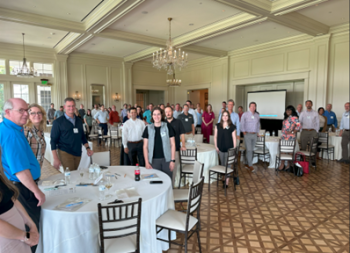Medicare Aims to Shut Down Non-CMS-Approved WCMSAs
The Centers for Medicare and Medicaid Services (CMS) issued an updated Workers’ Compensation Medicare Set-Aside Arrangement (WCMSA) Reference Guide – Version 3.5, on January 10, 2022. In that Reference Guide, CMS reiterated that submitting a WCMSA proposal for review is never required, but is recommended, as the WCMSA review process is “the only process that offers both Medicare beneficiaries and Workers’ Compensation entities finality, with respect to obligations for medical care after a settlement, judgement, award, or other payment occurs.” CMS advised, as it has in the past, that it stands behind an approved WCMSA. And that “[w]ithout CMS’ approval, Medicare may deny related medical claims, or pursue recovery from related medical claims that Medicare paid up to the full amount of the settlement, judgement, award, or other payment.” Parties in the industry had always understood that to be CMS’ avenue for dealing with settlements it contends do not adequately protect its interests.
The update in the Reference Guide sets forth CMS’ position with regard to the use of non-CMS-approved products to address future medical care, presumably only in relation to settlements that meet the CMS review threshold for submission and approval of a WCMSA, but in which the parties decide not to proceed with voluntary submission. Specifically, CMS has advised:
A number of industry products exist with the intent of indemnifying insurance carriers and CMS beneficiaries against future recovery for conditional payments made by CMS for settled injuries. Although not inclusive of all products covered under this section, these products are most commonly termed “evidence-based” or “non-submit.” 42 C.F.R. 411.46 specifically allows CMS to deny payment for treatment of work-related conditions if a settlement does not adequately protect the Medicare program’s interest. Unless a proposed amount is submitted, reviewed, and approved using the process described in this reference guide prior to settlement, CMS cannot be certain that the Medicare program’s interests are adequately protected. As such, CMS treats the use of non-CMS-approved products as a potential attempt to shift financial burden by improperly giving reasonable recognition to both medical expenses and income replacement. As a matter of policy and practice, CMS will deny payment for medical services related to the WC injuries or illness requiring attestation of appropriate exhaustion equal to the total settlement less procurement costs before CMS will resume primary payment obligation for settled injuries or illnesses. This will result in the claimant needing to demonstrate complete exhaustion of the net settlement amount, rather than a CMS-approved WCMSA amount.
This new language is contrary to CMS’ longstanding position that submission of a WCMSA for review and approval is a voluntary process. According to the new policy, if a settlement meets the CMS review threshold, no formal WCMSA is submitted for review and approval by CMS, and an “evidence-based” or “non-submit” WCMSA is funded as a part of the settlement, CMS will disregard the WCMSA amount and demand the claimant provide proof he/she spent the entire settlement funds, minus procurement costs, prior to CMS agreeing to pay for any injury-related medical treatment. 42 C.F.R. 411.46 does allow CMS to deny payment for treatment of work-related conditions if a settlement does not adequately protect Medicare’s interest, but here CMS is assuming any case not submitted for approval, which could be, does not adequately protect Medicare’s interests. That assumption is likely unfounded in the majority of cases.
Many insurance carriers and other primary payers have been utilizing non-submit programs for years. I suspect Medicare beneficiaries will be opposed to a non-submit WCMSA when he/she realizes CMS will expect him/her to spend the entire settlement funds, minus procurement costs, on future medical care prior to CMS agreeing to provide coverage. It will be interesting to see how this plays out once the information makes its way into the industry.
Hedrick Gardner will continue to monitor any updates in this regard and will provide additional information when available. Please contact Shannon Metcalf with questions regarding this notice or for any other Medicare inquiries.
Please contact Shannon Metcalf with questions regarding this update. She is a Medicare Set-Aside Certified Consultant (MSCC), whose practice focuses heavily on Medicare Secondary Payer Act compliance.



